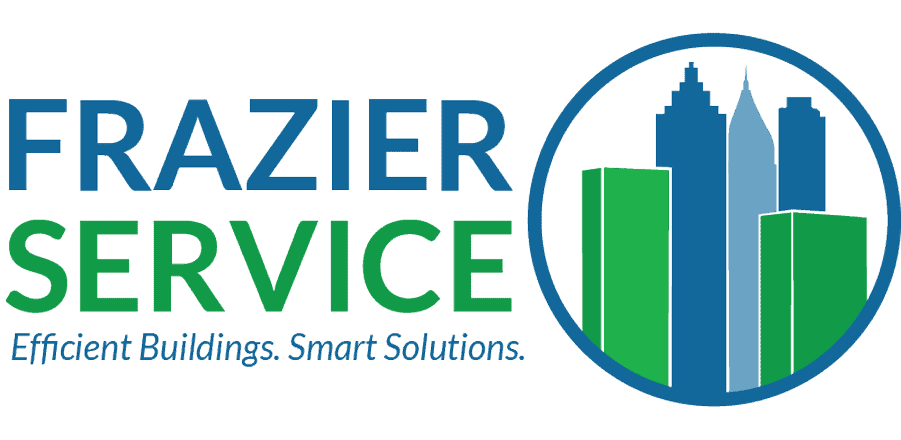Building an energy management plan and sticking to it is tricky but essential to cut operational costs and prepare your building for the future. Use our tips to guide your energy efficiency initiative and get your operations in order.
Why You Should Improve Industrial Energy Efficiency in Your Building
Electricity comes at a high price, and reducing energy costs may feel impossible. However, with some research and a thorough review of your building’s energy usage, effective and sustainable energy management is possible. Even the smallest adjustments can reduce wasted energy and cut operational costs.
Saving energy has the following advantages:
- Improves your bottom line by reducing production costs and strengthening your budget
- Maximizes efficiency with optimized equipment and properly allocated resources
- Protects the environment through reduced carbon emissions
You don’t need to purchase the most cutting-edge solution to reduce the amount of energy your building uses for daily operations. There are plenty of cost-effective methods to save energy and increase productivity in any industry. Keep reading to discover how you can optimize your building’s energy consumption.
Industrial Energy Conservation Tips
To establish a successful energy management plan, you need to review your building’s operations. Only then can you evaluate and improve your infrastructure and reap the benefits. Check out the following tips and consider which would be best for your business:
Evaluate Your Energy Costs
The first step to addressing energy usage and promoting cost savings for any business is acknowledging there’s a problem in the first place. With full awareness, you can look at the issue from multiple angles and identify areas for improvement.
Perform an HVAC System Audit
Heating and ventilation systems account for roughly 60% of the total power consumption of an industrial sector building. With an HVAC system, even the slightest change can yield amazing results. Inspect air compressors and seal airlines. Try adjusting your building’s stable temperature—setting the thermostat just one degree hotter or colder than usual will cut energy costs. Investing in solutions like hemp insulation can also maintain your building’s temperature.
If your HVAC system is outdated or malfunctioning, don’t hesitate to replace the equipment. HVAC unit replacement may sound like an extreme measure, but the cost of new air conditioning is far less than constant repairs.
Retrofit an Older HVAC System
If your building’s HVAC system is well-maintained but could use an upgrade, a retrofit is an excellent option. When you replace the air compressor or add condenser controls to a bulky and energy-intensive system, your equipment works more efficiently, preventing wasted energy.
Introduce Programmable Thermostats and Controls
Programmable thermostats promote energy efficiency by automating temperature controls. With them, your facility’s temperature will adjust automatically according to time of day, occupancy, and other parameters, decreasing your HVAC system’s workload and saving you money.
Invest in Building Automation Systems
With an automated facility, building managers can program certain actions to occur when certain conditions are met. The system sends alerts when HVAC performance dips or energy consumption increases. With valuable data and effective automated measures, building owners can detect and correct problems in their infrastructure faster.
Automated Deactivation
Building managers with automated systems should set timers to keep the lights on only when needed. Appliances you don’t use often should be unplugged. Consider installing motion sensors in areas that don’t see much activity, so devices only turn on when required.
Preventative Maintenance
Schedule routine equipment cleaning and maintenance. You can optimize your energy usage with regular maintenance, ensuring your machines last longer and require less energy to operate.
Perform an Energy Audit
An energy audit shows building owners a full picture of their energy consumption. Audits provide detailed information like peak consumption times and which systems are the most energy-intensive. Once you understand your energy usage patterns, you can implement more effective energy management and drastically cut operational costs.
Schedule Your Energy Usage
Using the report from your energy audit, adjust your operations to cut back on wasted energy. Stagger production and machine startups to manage peak load and usage. Program computers to sleep or shut down when not in use. Install control systems to streamline maintenance and remotely monitor energy consumption.
Use Renewable Energy Sources
Switching to an energy source like wind or solar power can save you money over time. Installing solar panels on the roof of your building reduces your peak demand, and if you generate more energy than you need, you can sell it to a local utility.
If you’re worried about the price of switching to renewable energy, federal and state programs and various tax breaks make the switch to alternative sources more affordable.
Enjoy Industrial Energy Reduction With Frazier Service Company
Are you ready to reduce energy consumption for your facility? Frazier Service Company supports your energy management plan with preventative maintenance, equipment replacement, installation, building automation, and more. Saving money on energy doesn’t have to be a challenge. Choose Frazier as your source for commercial building solutions.






